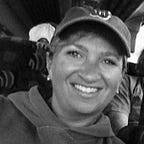Carving a Path to What is True
For many of us, the term “fake news” will forever be linked to the 2016 Presidential Election and the political drama that existed after. The years of investigation into Russia’s involvement, the Cambridge Analytica scandal and the President’s twitter feed itself have tainted how we view our news and information sources.
Today when we Google “fake news,” the results feature more than 1.4 billion examples, academic studies, research projects, news articles and nonprofit organizations. There are books, studies, articles, movies, podcasts and documentaries; all fascinated about how social media has impacted politics through the use of made up stories and false ads targeted to voters in swing states.
It’s fair to say that the term “fake news” has taken on a life of its own and has gone from the subject of one of President Trump’s tweets to the focus of a global movement. And now, as we head into another election season, we find ourselves in a precarious position for we will once more be tested on how well we can identify fiction and how we search for true and accurate information.
The fact is that fake news itself is not a dragon that can be slayed by one individual or organization alone. If in fact, fake news has become a movement, then it is also a thought process, a negative discipline and an outcome that requires each of us to be a part of a responsible society. Since 2016, many individuals and organizations have been helping to carve a path to the truth by doing what they can to hold others accountable.
David Carroll did just that when he challenged Cambridge Analytica for his personal data. Carroll, an Associate Professor at Parsons School of Design in New York became well known for challenging Cambridge Analytica and the SCL Group companies under the Data Protection Act. He was featured in the 2019 Netflix documentary, The Great Hack, which spotlighted his legal fight and uncovered details about how Cambridge Analytica gained access to the personal data of more than 87 million Facebook users including Carroll through a third-party application in 2015.
Through his legal action, Carroll helped ignite the circumstances which led to a government investigation into how Cambridge Analytica created slanted stories aimed at boosting its clients campaign and posted those stories online, targeting the accounts of the individuals whose data they breached. As a result of the various legal actions against them, Cambridge Analytica disbanded in 2018.
From an organizational perspective, ProPublica has been working to spotlight truth since 2007. ProPublica and its hundreds of journalists across the country partner with mainstream media sources including ABC News, BBC and CBS News. As an independent, nonprofit news organization, ProPublica fancies itself as a public watchdog, helping to uncover the organizations and individuals behind false implications or made up exaggerations of political truths. In addition, individuals interested in learning more can sign up for newsletters and daily emails on various topics.
In 2017, ProPublica announced that the organization had built a tool (https://bit.ly/2yT3aka) allowing Facebook users to identify and send political ads that were displayed in the users’ news feeds. Using a custom-built algorithm in several countries, the “Political Ad Collector” helps ProPublica identify and research targeted political ads, some of which help the newsroom uncover fake news stories.
Efforts of those like ProPublica and David Carroll have helped the voting public identify ways to increase the dialogue and scrutiny of political content. Given that we are currently in an election season, the time is right for each of us to hold ourselves, our social media platforms and our neighbors accountable for the information that is shared online.
For starters, we must become more vigilant in protecting our personal data by setting our accounts with the strictest privacy settings, watching for suspicious activity and reading those long privacy agreements will help protect our data. From there, it is vital that we take the time to use tools such as ProPublica’s Political Ad Collector and fact checking sites such as snopes.com in order to verify the validity of the information and news we read. And lastly, we need to insist that those around us do the same.
